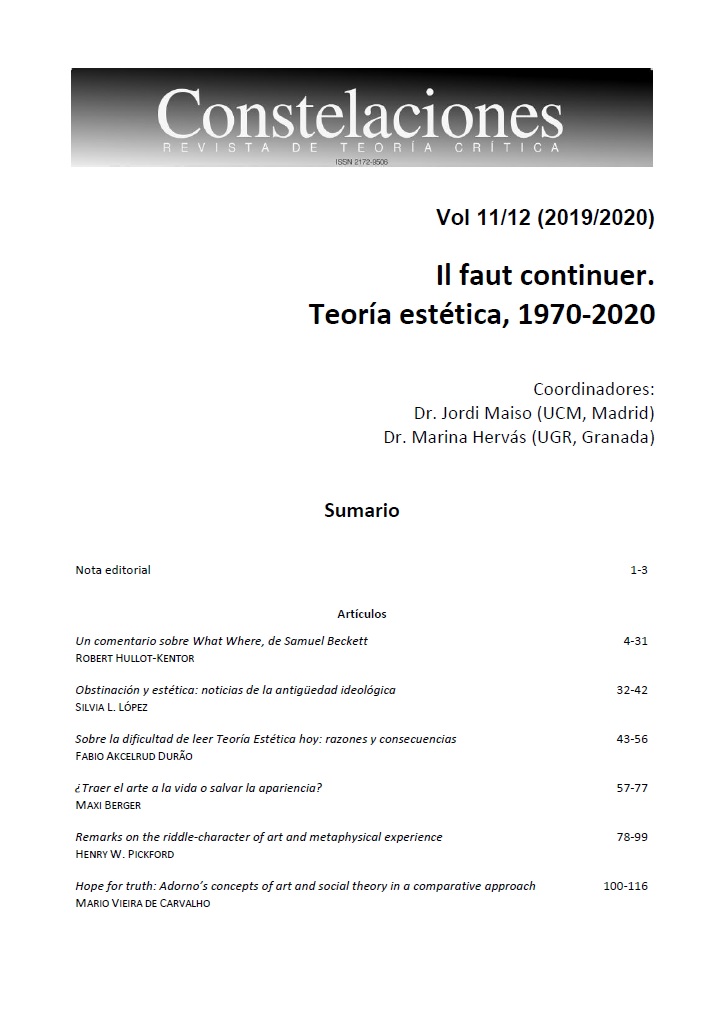Hope for Truth: Adorno’s concepts of art and social theory in a comparative approach
Palavras-chave:
art, social theory, truth content, critique of ideology, music as art's paradigmResumo
The constellation in which Adorno’s unity of thought comes to light – the critique of science as ideology, the overcoming of the distinction between philosophy and sociology, the concept of art as the beginning and end of philosophy, knowledge (Erkenntnis) as constituens of both (art and philosophy), presupposes a close relationship between his theory of art and his social theory. In other words, from Adorno’s aesthetic theory, and especially from his musical writings, a concept of art emerges that essentially coincides with his concept of social theory. The purpose of the present paper is to discuss this mirror-like relationship. In fact, postulates such as the interaction between object and method, the overcoming of deductive method and descriptive knowledge, the subject-object dialectics, the prefiguration of the non-identical from a tendency, the resistance of the singular to totalizing systems, the critique of ideology as a critique of language – among others with which they are correlated – are inherent to Adorno’s concepts of art and social theory. They have both in common, as it should be inferred from Adorno’s thinking, the hope for truth.
Downloads
Downloads
Publicado
Como Citar
Edição
Secção
Licença
Direitos de Autor (c) 2020 Mario Vieira de Carvalho

Este trabalho encontra-se publicado com a Licença Internacional Creative Commons Atribuição-NãoComercial-CompartilhaIgual 4.0.
Aquellos autores/as que tengan publicaciones con esta revista, aceptan los términos siguientes:
1. Los autores/as conservarán sus derechos de autor y garantizarán a la revista el derecho de primera publicación de su obra, el cuál estará simultáneamente sujeto a la Licencia de reconocimiento de Creative Commons que permite a terceros compartir la obra siempre que se indique su autor y su primera publicación esta revista.
2. Los autores/as podrán adoptar otros acuerdos de licencia no exclusiva de distribución de la versión de la obra publicada (p. ej.: depositarla en un archivo telemático institucional o publicarla en un volumen monográfico) siempre que se indique la publicación inicial en esta revista.
3. Se permite y recomienda a los autores/as difundir su obra a través de Internet (p. ej.: en archivos telemáticos institucionales o en su página web) antes y durante el proceso de envío, lo cual puede producir intercambios interesantes y aumentar las citas de la obra publicada. (Véase El efecto del acceso abierto).
Confidencialidad de los datos
1. Constelaciones. Revista de Teoría Crítica garantiza que los datos que nos envíe serán utilizados únicamente para atender sus demandas manifestadas en este mensaje.
2. Sus datos no serán cedidos a terceros.
3. Cuando lo desee puede solicitar que sus datos sean eliminados de nuestros registros.





